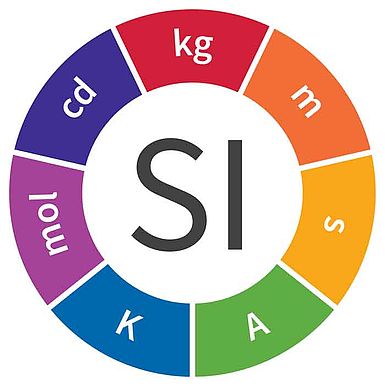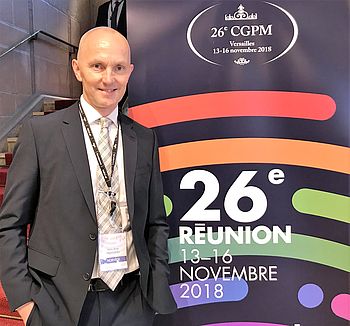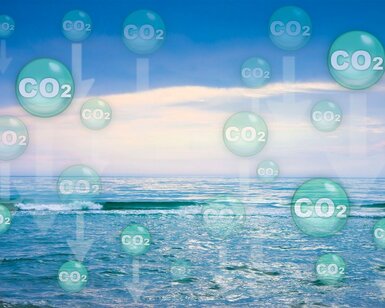Please type a search term (at least two characters)
News
Scientists are set to overhaul the International System of Units

CGPM voting on SI redefinition on 16 November 2018 - kilogram set to be redefined
On 16 November 2018, measurement scientists from more than 60 countries will come together to witness the vote on the revision of the International System of Units (SI), changing the world’s definition of the kilogram, the ampere, the kelvin and the mole. If agreed, these changes will come into force on 20 May 2019. The vote is taking place at the General Conference on Weights and Measures in Versailles, France, organised by the International Bureau of Weights and Measures (BIPM). The decision will mean that all SI units will be defined in terms of constants that describe the natural world, establishing the future stability of the SI and opening up the opportunity for new uses of technologies to implement the definitions.
"I am looking forward to the General Conference this week with great anticipation”, says Hans Arne Frøystein, EURAMET Chairperson, “This is a milestone not only for the metrology community but for the whole world. The redefined SI will be universal, based on constants of nature and no longer dependent on physical artefacts.”
The decision will bring an end to the use of physical objects to define measurement units. The kilogram, for example, is currently defined as the mass of the International Prototype of the Kilogram, a cylinder of a platinum alloy stored at the BIPM in France. This object has served science and technology well for nearly 130 years, but its stability during this period could only be confirmed by comparisons with identical copies, which is a difficult and potentially inaccurate process.
The proposed change will see the kilogram defined by the Planck constant – the fundamental constant of quantum physics. It is ready for use everywhere and always.
“The SI redefinition is a landmark moment in scientific progress”, said Martin Milton, Director, International Bureau of Weights and Measures (BIPM), “Using the fundamental constants we observe in nature as a foundation for important concepts such as mass and time means that we have a stable foundation from which to advance our scientific understanding, develop new technologies and address some of society’s greatest challenges.”
The expected new definitions impact four of the seven base units of the SI: the kilogram, ampere, kelvin and mole, and all units derived from them, such as the volt, ohm and joule.
- The kilogram – will be defined by the Planck constant (h)
- The ampere – will be defined by the elementary electrical charge (e)
- The kelvin – will be defined by the Boltzmann constant (k)
- The mole – will be defined by the Avogadro constant (NA)

Although the size of these units will not change (a kilogram will still be a kilogram), the four redefined units will join the second, the metre and the candela to ensure that the set of SI base units will continue to be both stable and useful.
This historic step for the SI units is possible due to the hard work and expertise of many scientists, among them many EURAMET members and collaborators, a sentiment echoed by Hans Arne:
“I am proud to say that EURAMET members, through our research programmes, have contributed greatly to the scientific basis for the new system. The modernised SI is built for the future and will stimulate further development without having to be changed again. It is also very important to take this opportunity to spread the news about the new SI and metrology to remind everyone about the importance of measurement in all aspects of our lives."
Watch the vote online
To watch the vote on the redefinition of the kilogram, ampere, kelvin, and mole online visit www.bipm.org/the-si on Friday, 16 November at 11 a.m. CET.
Want to hear more about EURAMET?
Sign up for EURAMET newsletters and other information
Carbon dioxide, released from man-made activities, is lowering the pH of the Earth’s oceans, and impacting the health of marine organisms worldwide more
Supporting automated and reconfigurable manufacturing systems more
Working with external project Cool White to test and suggest improvements on the locally available white paints more
The project FutureEnergy has provided new calibration services for ultra-high voltages and a good practice guide on Lightning Impulse dividers more
For many of the 5000 photonics companies in Europe a precise knowledge of a material’s optical properties is vital for industrial competitiveness more





